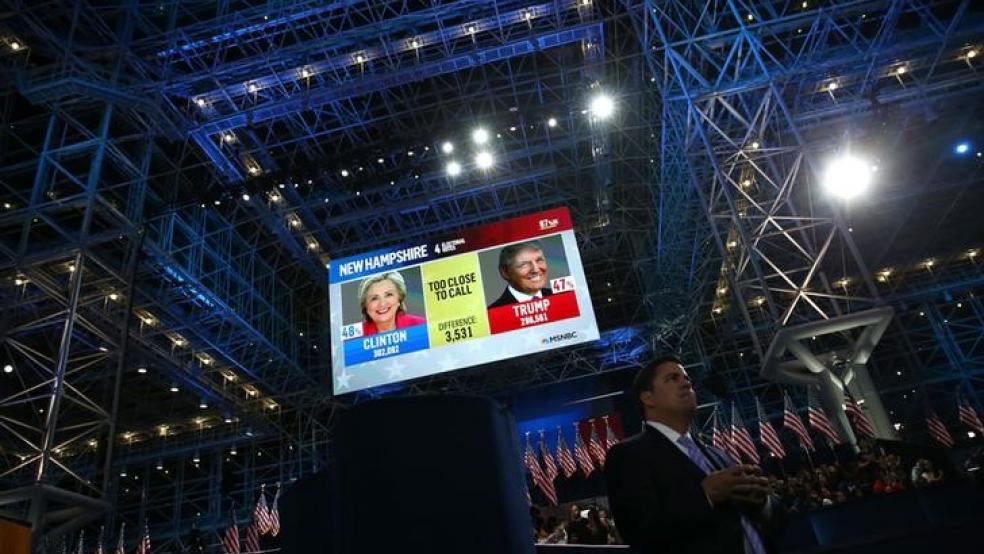On Friday, Hillary Clinton called for creation of a government commission with the power to compete with or penalize pharmaceutical companies like Mylan, Valeant and Turing that jack up the prices of lifesaving drugs that have been on the market for years.
The new group, made up of representatives from federal agencies responsible for health, safety and market competition, would be part of a broader Democratic drive to toughen the government response to soaring drug prices that have enraged consumers, insurers and federal providers of health care.
Related: EpiPen Maker Enters the Pharmaceutical Industry’s Hall of Shame
The new panel’s duties would include determining whether a price hike for a long-standing drug was justified based on the trajectory of the price increase, the cost of production and the relative value of the drug to patients, according to a summary of the plan released today.
If the panel concluded that the price increase was not justified, it could respond in a number of ways, from directly intervening to make treatments available to the public from alternative manufacturers to imposing stiff fines and penalties on the offending drug company to try to force a price rollback.
“These measures will offer carrots and sticks: they will immediately expand availability of treatments during a price spike, and potentially respond to and deter unjustified price increases with penalties including fines – which would be used to fund increased competition and access,” Clinton’s campaign said in a statement.
The Democratic nominee hasn’t explained how she would implement her new initiatives, although they likely would require a combination of legislative authority and executive action. That would almost certainly draw strong resistance from the politically potent pharmaceutical industry. In the past, Big Pharma has blocked efforts to create government price controls or allow Medicare and other government agencies to aggressively negotiate drug prices.
Clinton’s latest proposal was unveiled just days after the embattled Mylan pharmaceutical company effectively scaled back by half the exorbitant cost of its EpiPen auto-injection drug treatment of life-threating reactions to peanuts, bee stings and other allergens.
Related: Will Mylan’s $300 Generic EpiPen Packs Quell Pricing Firestorm?
The one-of-a-kind EpiPen has been used for decades to provide a prompt response to allergic reactions in children and adults that can impair breathing. The retail price for a two-pen sent was once less than $100, but it steadily rose after Mylan acquired the rights to it in 2007, reaching $608 this year.
Mylan at first sought to quiet the protest by offering generous discounts and coupons, but by Monday the company announced it would offer an alternative generic version at $300 per two-pack beginning in several weeks.
Mylan is just the latest poster child for bad corporate behavior that has reaped billions of dollars in profits at the expense of consumers, the health insurance industry and government programs including Medicare and Medicaid that devote a major portion of their budgets to purchasing drugs.
Gilead Scieces drew sharp criticism for its retail pricing of Sovaldi and Harvoni, two biometric drugs highly effective in the treatment of the hepatitis C virus that cost as much as $100,000 for a full treatment. Top officials of Valeant Pharmaceuticals were forced to apologize to lawmakers in April after they acquired the rights to Nitropress and Isuprel, two heart and blood pressure medicines, and then raised their prices by 212 percent and 525 percent, respectively.
And Turing Pharmaceuticals, formerly headed by hedge fund manager Martin Shkreli, purchased the license for an anti-parasitic drug called Daraprim and then raised the price by over 5,000 percent.
Related: Two Big Reasons Prescription Drug Prices Are So Much Higher in the US
Between 2008 and 2015, drugmakers increased the prices of nearly 400 generic drugs by over 1,000 percent, according to a recent study. Clinton noted that many of those companies do not develop the drugs themselves but acquire the manufacturing rights and then raise the prices.
Clinton and Sen. Bernie Sanders of Vermont denounced Turing’s marketing strategy during the Democratic presidential campaign earlier this year, and last week the former secretary of state described Mylan’s actions as “outrageous.” Throughout her campaign, Clinton has championed the lowering of prescription drug costs, including proposals to allow Medicare to negotiate prices, cap monthly drug costs, and ensure that drug companies invest more of their revenues in research and innovation.
Clinton has also advocated broadening consumer access to safe, high-quality generic and alternative competitors through the emergency importation of drugs from Canada and other countries.
“Our pharmaceutical and biotech industries are an incredible source of American innovation and revolutionary treatments for debilitating diseases,” Clinton said in a statement. “But I’m ready to hold drug companies accountable when they try to put profits ahead of patients, instead of back into research and innovation.”




